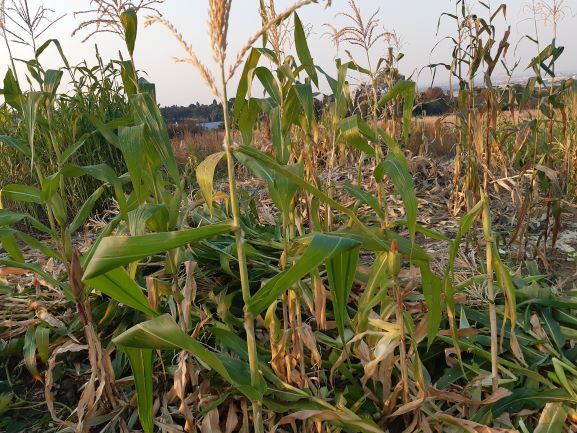African countries need to urgently expand food reserves, keep food supply flowing and boost their agriculture budgets to avert a possible hunger pandemic, partly caused by the COVID-19 pandemic, delegates at a two-day webinar hosted by the African Development Institute (ADI) urged on Tuesday.
Africa must now, more than ever, develop and implement policies to enhance capacity to compete in the agriculture sector, processing, trade and industry, the speakers said in a clarion call for action.
Noting that COVID-19 has fast-tracked the transition to the 4th Industrial Revolution era, participants also called on African governments to scale up technology for agriculture production, including private sector-led initiatives, to build resilience and grow the sector to self-sufficiency.
The webinar, titled, Building Resilience in Food Systems and Agricultural Value Chains: Agricultural Policy Responses to COVID-19 in Africa, examined the pandemic’s impacts on Africa’s agri-food systems and offered policy recommendations to make them more resilient and efficient.
The dialogue, which drew 770 experts from 57 countries, was the second in a series ADI organised under its Global Community of Practice (G-CoP) to provide evidence-based policy guidance to African Development Bank Group member countries.
Participants urged governments to prioritise agriculture and agribusiness in national security agenda by implementing structural reforms. Reforms proposed include merging ministries of agriculture, health, trade and industry and environment into ‘One Health Ministry’ for greater impact.
Introducing trade or non-trade barriers is not a welcome policy in Africa, especially during the pandemics, the forum noted. It therefore called on Africa to establish green corridors and domestic food systems and keep inter-regional food supply chains open during the pandemic.
Many African countries must import food to meet domestic demand and so face dangerous food shortages due to COVID-19 related supply-chain disruptions. Further, a number of countries in East Africa and the Horn are grappling with another food security threat: locust swarms.
Participants noted that food insecurity had been a problem prior to the pandemic, as many African countries lack adequate strategic food reserves. Other challenges, including climate change, water scarcity, and poorly developed agricultural markets were also discussed.
These factors driving extreme hunger could kill far much more than COVID-19 in Africa if lockdowns persist without clearing the “choke-points” in the food supply chain to the vulnerable, the meeting observed.
Without COVID-19, many of our people were already hungry. The pandemic has worsened the situation. Let’s call this an emergency for food production and let this crisis not waste, they noted.
Speakers likened this to “a silent war on the most vulnerable populations without guns.”
Participants offered several policy solutions, including promotion of research; enhancing capacity; and expansion of regional agricultural trade, with the African Continental Free Trade Area representing one pathway to resilient regional food supply chains.
The experts also called for the establishment of national agricultural productivity accelerator funds to support smallholder farmers and SMEs to ramp up production.
Women represent a large share of the agriculture workforce, and participants urged the deployment of funding and technical support, including cash transfers to women and smallholder farmers, to accelerate agriculture and food production. They proposed that long-term contracts should be signed with local producers, urban farmers and suppliers to help safeguard supply.
The Bank’s Technologies for African Transformation (TAAT) and the Special Agricultural Processing Zones (SCPZs) were identified as good stimulators for building resilience in African food systems and agricultural value chains.
The webinar, organized in partnership with African Association of Agricultural Economists (AAAE), featured speakers from the World Bank, the International Food Policy Research Institute (IFPRI), the Food and Agriculture Organization (FAO), universities of agriculture, and agricultural policy research institutions and networks.
The African Development Institute (ADI) is the African Development Bank’s focal point for Capacity Development. Its goal is to lead efforts at building sustainable capacity for development effectiveness in the Bank’s regional member countries.
Read More: https://bit.ly/2zlWOKR
Distributed by APO Group on behalf of African Development Bank Group (AfDB).








